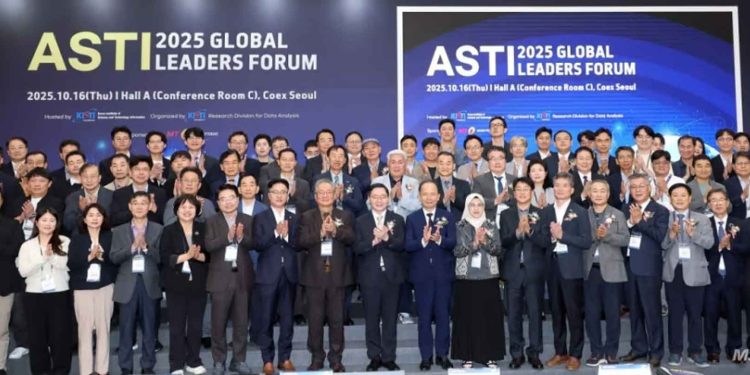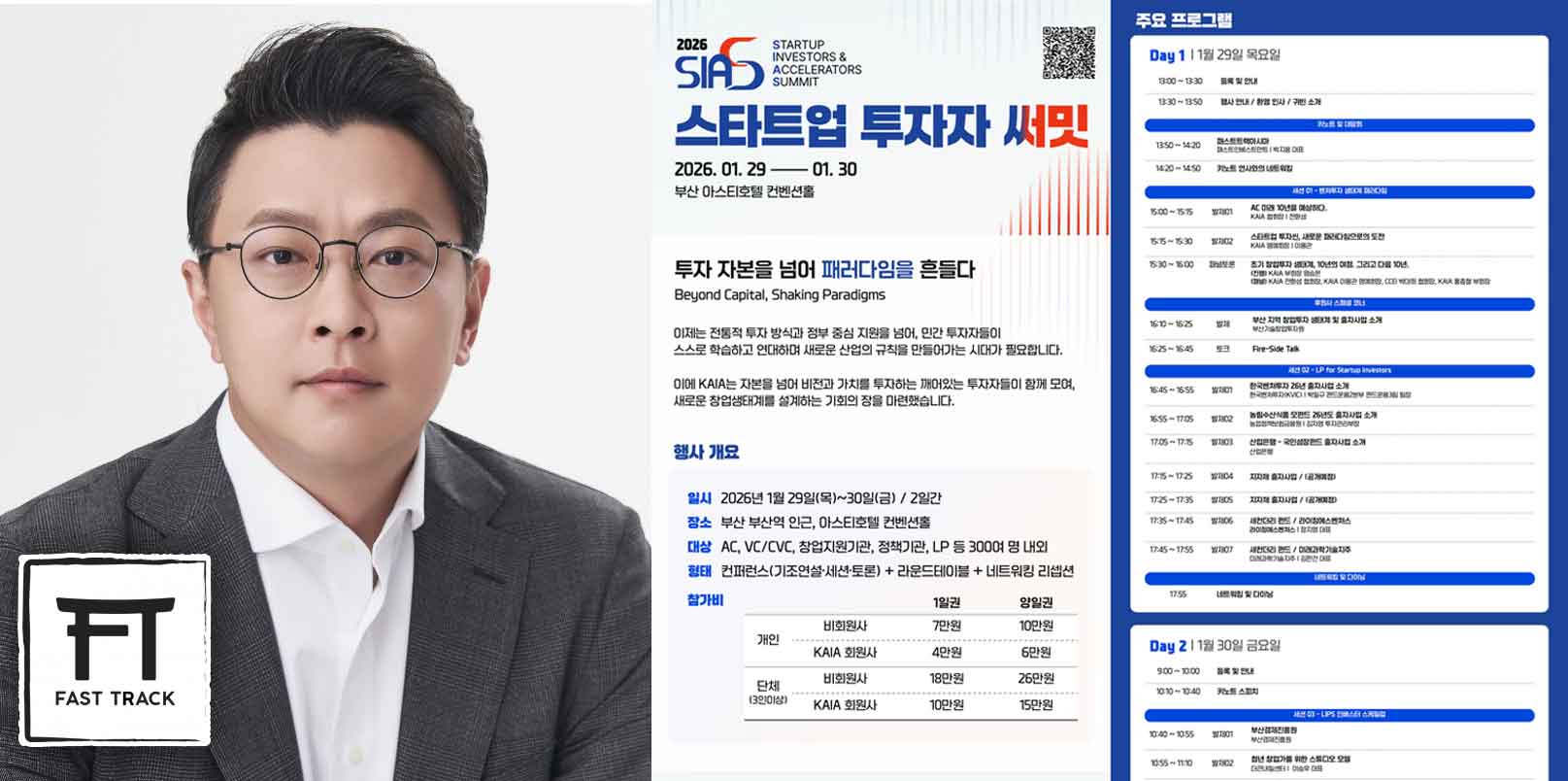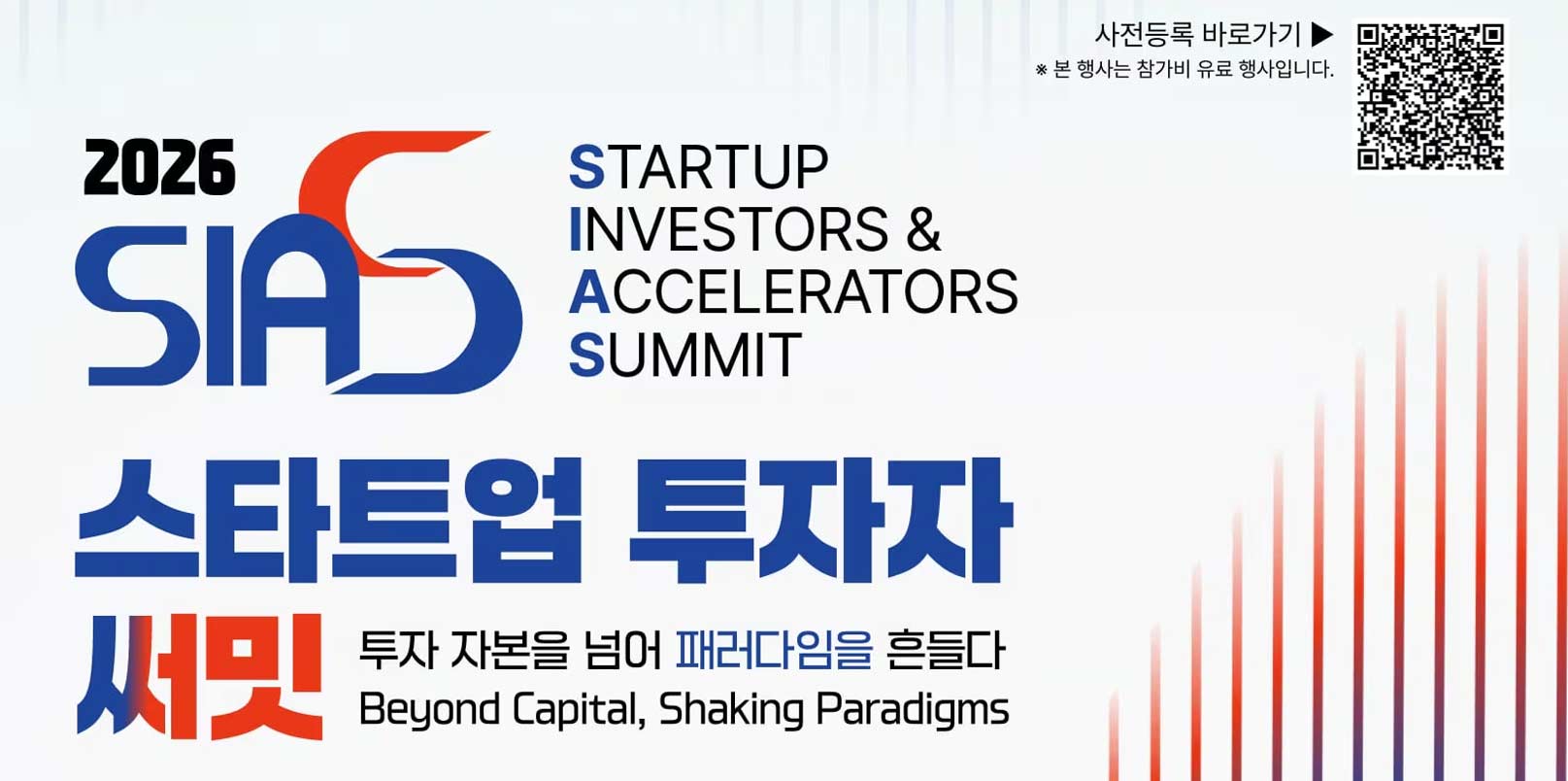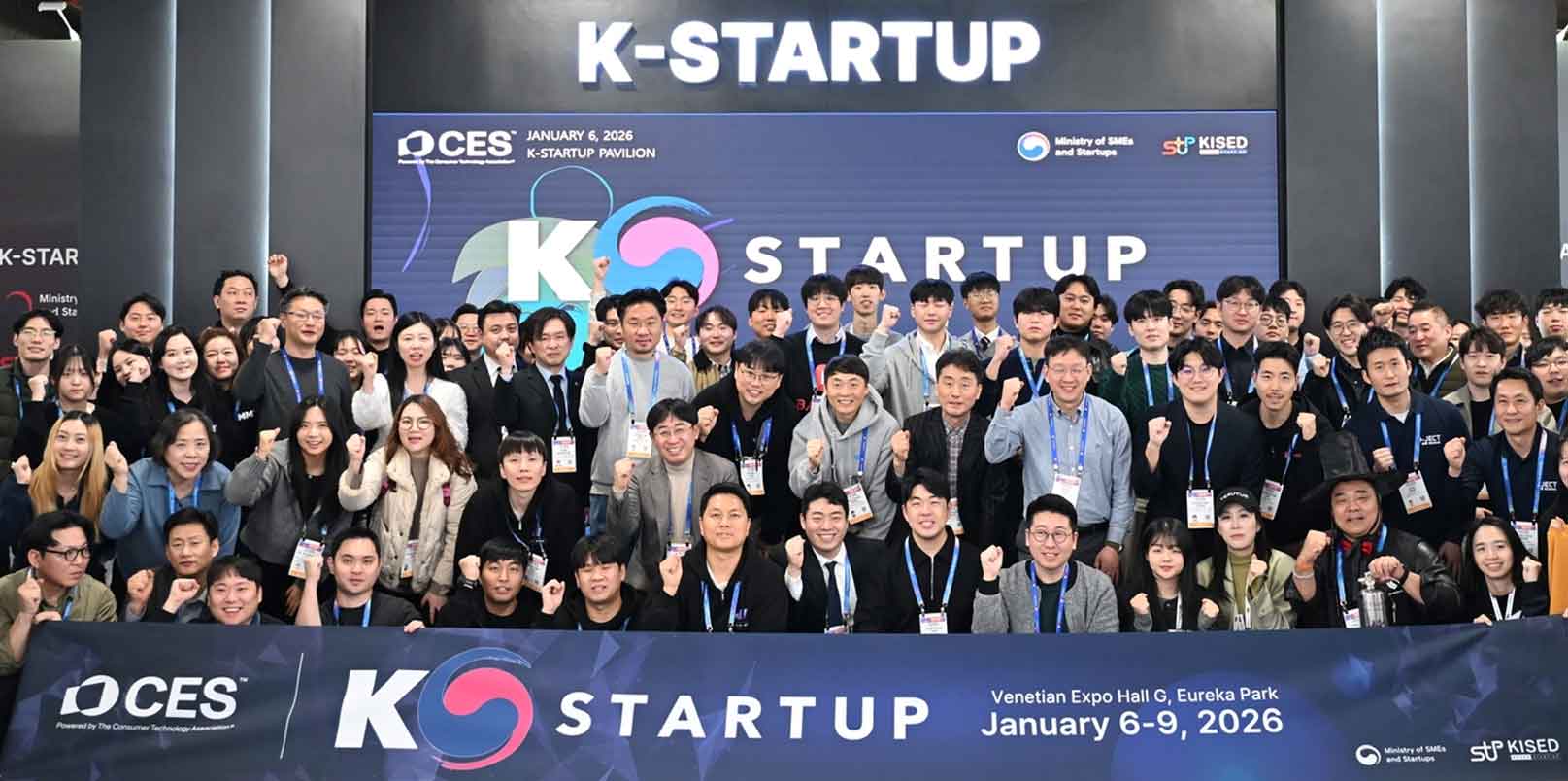Korea’s innovation engine is entering a transformative phase. Through the Global ASTI 2025 initiative, the country’s leading R&D network is integrating AI to link research, startups, and industry across borders. For global investors and founders, this marks a pivotal moment — when Korea’s scientific strength becomes a platform for shared growth and cross-border technology collaboration.
AI Transforms Korea’s National Innovation Network into a Global Collaboration Platform
The Association of Science and Technology Information (ASTI), one Korea’s largest international R&D cooperation networks, is entering a new phase of AI-powered transformation.
At the 2025 Global ASTI Leaders Forum, held on October 16 at COEX, Seoul, government officials, research leaders, and industry representatives from Korea and abroad outlined strategies to turn ASTI into an AI-driven platform for technology commercialization and global market expansion.
The forum gathered over 10,000 participating companies and 23,000 experts across industry, academia, research, and government. Discussions focused on how AI can accelerate R&D collaboration, strengthen SME competitiveness, and expand Korea’s role in global technology ecosystems.
Global ASTI 2025: Building Trade Resilience Through AI-Driven R&D and Global Partnerships
Established in 2009 under the Korea Institute of Science and Technology Information (KISTI), ASTI has evolved from a domestic knowledge-sharing network into a strategic hub for AI-based industrial innovation and global R&D integration. The organization’s transformation reflects Korea’s national shift toward export diversification and AI-enabled growth, particularly as global supply chains and trade rules undergo rapid realignment.
Forum sessions highlighted success stories where AI-powered collaboration led to measurable SME growth. One electronics manufacturer, supported through ASTI’s technology-market analysis and facility upgrades, achieved annual sales growth exceeding 50%. Another semiconductor company secured government R&D funding after ASTI facilitated university–industry networking.
Participants agreed that the next phase of ASTI’s evolution must focus on “analysis → proposal → matching” — integrating AI tools and KISTI’s extensive databases to align corporate needs with R&D resources. This transition, known as “ASTI-X”, is structured around three strategic pillars: Connect, Intelligence, and Global.
- Connect: Build AI-enabled cooperation networks between universities, companies, and research institutions to improve matching speed and accuracy.
- Intelligence: Deliver AI-driven diagnostic, solution, and transformation models that support the full R&D lifecycle.
- Global: Facilitate cross-border data platforms for demand–supply matching and public–private partnership projects to expand Korean SMEs’ international reach.
Stakeholders Emphasize Collaboration Beyond Borders
Opening the event, KISTI President Lee Sik emphasized that technological cooperation must turn current challenges into opportunities:
“Facing the twin waves of AI hegemony and tariff wars, if we row together through science, technology, and innovation, this crisis can become a new opportunity for growth.”
ASTI National Chair Kim Byung-guk (CEO of Jeonjin Entech) underscored the importance of global mindset among Korean innovators:
“The world is undergoing massive transformation. Yet this is not an era of crisis but of opportunity. Through AI innovation and international cooperation, we can overcome any challenge together.”
Kang Ho-byung, CEO of MoneyToday, which co-organized the event with KISTI, reaffirmed the media’s role in supporting ASTI’s mission:
“Our startup platform Unicorn Factory will continue collaborating with ASTI to amplify Korea’s innovation momentum and spotlight regional success stories.”
ASTI’s Growing Role in Korea’s AI and Startup Ecosystem
ASTI’s transformation into a Global R&D Collaboration Hub signals Korea’s strategic intent to integrate startups and SMEs into international technology value chains. Through the Tech Market program co-hosted by ASTI and Unicorn Factory, four leading science and technology institutes — KAIST, DGIST, GIST, and UNIST — showcased high-potential research ready for industry transfer.
Central to these efforts is APOLLO, KISTI’s AI-based R&D commercialization platform, which analyzes technology potential and identifies optimal matches between public research outcomes and corporate innovation goals. APOLLO supports data-driven decisions that bridge laboratory research with market demand — a crucial step in Korea’s broader R&D reform agenda.
This AI integration strengthens the link between research and industry, positioning ASTI as a “Transformation Hub” where Korea’s academic and corporate sectors collaborate to commercialize innovation and expand globally.
Global ASTI 2025: Positioning Korea as a Global R&D Partner
The evolution of ASTI aligns with Korea’s wider innovation and R&D policy shift — from R&D spending to R&D productivity, and from domestic competitiveness to global integration. As AI, semiconductor, and quantum technology races intensify, KISTI’s role in connecting scientific research with industrial growth becomes increasingly central.
ASTI’s initiatives offer a pathway for startups and SMEs to enter new markets, reduce certification and R&D costs, and enhance export readiness through data-driven partnerships. The move toward AI-supported cooperation also mirrors trends seen in other innovation economies like Singapore and Japan, where government-backed research platforms increasingly focus on cross-border co-development and commercialization efficiency.
By enabling shared access to supercomputing, high-performance data analysis, and AI tools, KISTI and ASTI are reinforcing Korea’s position as a global innovation partner — not just a technology producer but a trusted collaborator in industrial transformation.
Korea’s Next Step in Global R&D Collaboration
The 2025 Global ASTI Forum made clear that Korea’s innovation agenda is no longer confined to domestic R&D success. It is about building a globally networked system that uses AI to connect ideas, markets, and industries across borders.
As President Lee Sik concluded, the nation’s scientific community and its industrial base must “row together” through rapid global changes. The Global ASTI initiative, by merging AI analytics with human collaboration, is shaping Korea’s next decade of innovation — one grounded in trust, technology, and global partnership.
🤝 Looking to connect with verified Korean companies building globally?
Explore curated company profiles and request direct introductions through beSUCCESS Connect.
– Stay Ahead in Korea’s Startup Scene –
Get real-time insights, funding updates, and policy shifts shaping Korea’s innovation ecosystem.
➡️ Follow KoreaTechDesk on LinkedIn, X (Twitter), Threads, Bluesky, Telegram, Facebook, and WhatsApp Channel.






